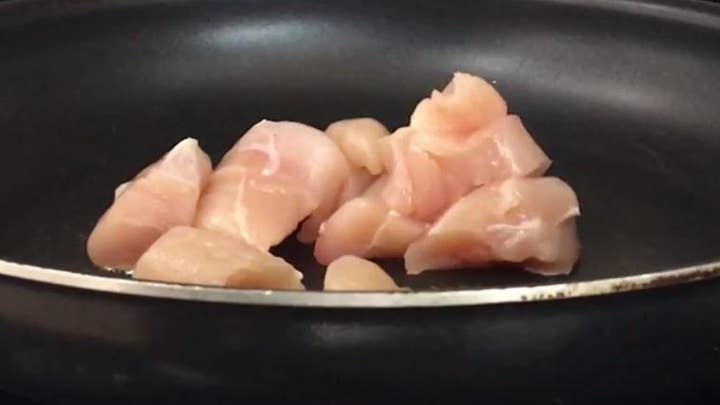
Fox News Flash top headlines for November 12
Fox News Flash top headlines are here. Check out what’s clicking on Foxnews.com.
With the holidays coming up, food safety is paramount to keep gatherings fun and healthy for everyone.
Chicken is a popular dish to serve, but how to prepare it has been a source of confusion for families over the years.
The question is this: Should raw chicken be washed before cooking?
The U.S. Centers for Disease Control and Prevention says no.
“Do not wash raw chicken. During washing, chicken juices can spread in the kitchen and contaminate other foods, utensils, and countertops,” the CDC warns.
Additionally, people should wash their hands with warm, soapy water for 20 seconds before and after handling chicken.

Raw chicken breasts
(Credit: iStock)
The CDC says to use a separate cutting board for raw chicken and never to place cooked food or fresh produce on a plate, cutting board or any surface that previously held raw chicken.
A microwaveable meal that includes frozen raw chicken should be handled like fresh raw chicken.
A food thermometer should be used to ensure chicken is cooked to a safe internal temperature of 165°F.
Cutting boards, utensils, dishes and countertops should be washed with hot soapy water after preparing chicken.
Leftover chicken should be refrigerated or frozen within two hours – or within one hour if the food is exposed to temperatures above 90 degrees Fahrenheit.
The agency points out that Americans eat chicken more than any other meat.

However, about 1 million people get sick from eating contaminated poultry annually.
Chicken, for example, is often contaminated with Campylobacter, Salmonella and Clostridium perfingens bacteria.
About 1 in every 25 packages of chicken are contaminated with Salmonella, which causes more foodborne illnesses than any other bacteria.
Consuming undercooked chicken or other foods of beverages contaminated by raw chicken or its juices can result in food poisoning.
“It is possible to reduce Salmonella contamination of chicken and the resulting illnesses, hospitalizations and deaths,” the CDC wrote. “CDC is working with [the U.S. Department of Agriculture’s] Food Safety and Inspection Service, state health officials, consumer groups, and industry to help prevent illnesses from chicken by better controlling germs at each step of the food production chain, from the farm to the fork.”
Source: Read Full Article